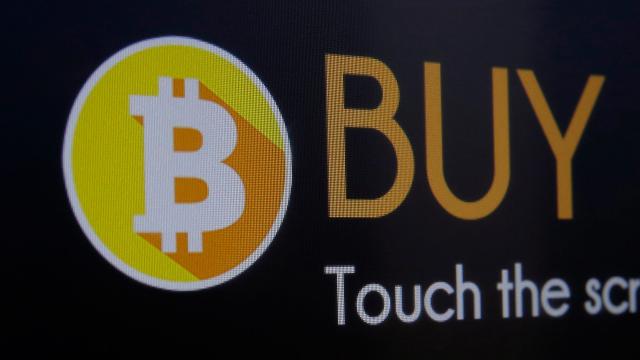Despite periodic crashes in the cryptocurrency markets, digital currency keeps on moving out of its formerly niche space and affecting the real world. Bitcoin-mining operations are now set to gobble more electricity than domestic residential consumption in Iceland, major credit card providers are banning purchases, rumoured scams as well as proven ones are rampant, and though some regulation has already been forthcoming authorities are largely playing catch-up.
Now, the New York Times reports, even the people with lots of crypto are starting to get nervous, in part due to a “startling number” of recent armed robberies of cryptocurrency holders across the globe. In an increasing number of cases, the Times reported, thieves have gotten away in part because it’s simple to run away with huge holdings – simply force the victim to hand over their hardware wallets or keys to online accounts – and in part because police sometimes lack the technical sophistication to track transactions that don’t end up getting tied to identities, as with regular bank accounts.
“For this, the advantage of Bitcoin is that it’s hard to verify,” Chalong Police Station investigator Chanut Hongsitthichaikul, who worked on a case involving a Russian man ambushed for roughly $126,490 in Bitcoin at the resort city of Phuket, Thailand, told the paper. “We asked the victim how to track it since they know Bitcoin better than us. We asked them how to check the receiver. They said there is no way. It is hard to do.”
In that case, police tracked a stolen laptop to Kuala Lumpur, where they were unable to find any other leads, the Times wrote. Other crimes related to cryptocurrency have included extortionate demands for ransom in exchange for cessation of hoax phone calls to the police (a practice known as swatting), a number of muggings at in-person sales of cryptocurrency, and numerous attempts to hijack cell phones in order to change passwords on holding accounts and escape with the contents.
But incidents like the brazen kidnapping of a prominent cryptocurrency exchange executive last year which reportedly scored the equivalent of $1 million appear to be on the rise, spurring particular paranoia among the crypto-riche, the Times reported:
A month earlier, a Turkish businessman was forced to hand over the passwords to his virtual currency wallets – containing nearly $4 million worth of Bitcoin – after having his car stopped by an armed gang in Istanbul that appeared to know about his Bitcoin holdings, according to local news reports.
Many big virtual currency holders privately say that they will no longer travel to Russia, Turkey or other countries where they assume that attacks may be easier to pull off because of organised crime.
But armed attackers have also hit a Canadian Bitcoin exchange in Ottawa, the Ether investor in New York City and a prominent virtual currency trader living near Oxford, England.
The richest crypto-currency enthusiasts have become somewhat cautious, and at the recent Satoshi Roundtable in Cancun, Mexico, the Times reported organisers “brought in a security force and instituted significant privacy measures for guests to protect them from criminals while they were in attendance.”
In at least a few cases in the US, the Times added, cryptocurrency enthusiasts have chosen to arm themselves – though alternatives like storing the currency in accounts that require multiple sign-ins from different people, or simply not bragging about one’s digital hoards in the first place, kind of seem like better ideas than posting videos with assault rifles to dissuade would-be attackers.
Bitcoin security pro tip: protect your software with hardware. pic.twitter.com/R4KeRGRcTP
— Jameson Lopp (@lopp) October 26, 2017
While the early-2018 Bitcoin crash may have cooled off the market somewhat, enthusiasts tend to be bullish on the long-term prospects of the market overall, in part because new currencies keep emerging.
Some evidence from forensic firm Chainalysis suggests that Bitcoin itself has largely fallen out of favour with dark-web users who often engage in illegal activities, per Fortune, who have started to move on to next-generation cryptocurrencies with faster transaction times and additional layers of anonymity that make it more difficult for authorities to track. While such features might make it easier to get away with the kind of in-person robbery suggested by the Times, they’re probably better put to use running non-violent online scams. According to another report in ZDNet, successors like Monero which hide transaction histories from prying eytes are closely associated with ransomware rings and malware that steals unused processor power from users to mine coins (cryptojacking).
Per the BBC, Europol believes that as much as $7 billion’s worth (four billion pounds) of European criminal proceeds are being laundered through cryptocurrencies, though the same lack of transparency that enables such laundering under the radar stymies anything resembling an accurate tally of the scale of the problem.
“They’re not banks and governed by a central authority so the police cannot monitor those transactions,” Europol director Rob Wainwright told the BBC. “And if they do identify them as criminal they have no way to freeze the assets unlike in the regular banking system … It’s very difficult for the police in most cases to identify who is cashing this out.”
